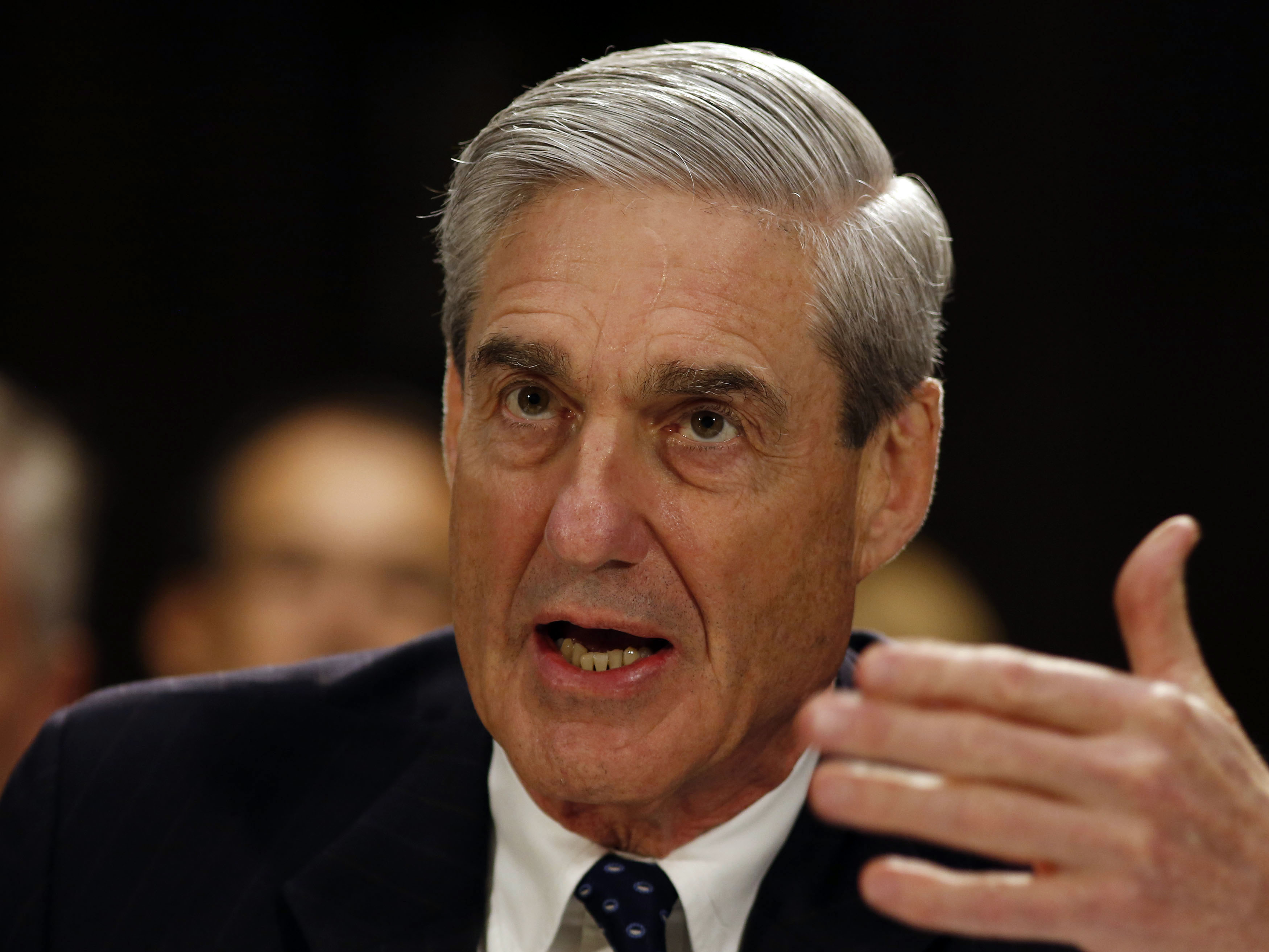- Senate Majority Leader Mitch McConnell said he doesn’t think Congress needs to pass legislation protecting special counsel Robert Mueller. Republicans have begun pushing back on calls from Democrats to protect Mueller, with some conservative lawmakers calling for Mueller to recuse himself from the investigation. President Donald Trump has attacked the FBI and Department of Justice repeatedly over the last week, but insists he is not “angry at anybody.”
Senate Majority Leader Mitch McConnell told MSNBC on Saturday that he didn’t think Congress needed to pass legislation protecting special counsel Robert Mueller from being fired by President Donald Trump.
MSNBC host Hugh Hewitt pointed out to McConnell that in light of former Trump campaign chairman Paul Manafort’s and campaign adviser Rick Gates’ indictments, opposing sides have gained traction in Congress.
“Some want legislation to restrain his power and limit his reach,” Hewitt said, referring to Mueller. “Others want legislation to keep him safe from being fired. Do you think Congress has any role in legislating about the special counsel right now?”
“I don’t hear much pressure to pass anything,” McConnell replied. “There’s been no indication the president or the White House are not cooperating with the special counsel.”
"I think the view up here is: let him do his job," McConnell added.
Despite Trump's recent attacks against the FBI and the Department of Justice, his team of defense lawyers, spearheaded by white-collar defense attorney Ty Cobb, have largely cooperated with Mueller's investigation by handing over key documents on time and making White House staffers available for interviews. Last month, it was also reported that Trump's defense team had mulled over offering the special counsel an interview with the president.
Before Manafort's and Gates' indictments this week, as well as revelations that early campaign foreign policy adviser George Papadopoulos pleaded guilty to lying to federal agents about his Russian contacts, several senators introduced bipartisan legislation aimed at protecting Mueller and the independent investigation.
Republican Sen. Thom Tillis and Democratic Sen. Chris Coons introduced a bill that would have allowed Mueller or any other special counsel to challenge their firing in a court of law.
Another bill, brought by South Carolina Sen. Lindsey Graham and New Jersey Sen. Cory Booker, would require that a judge approve the Justice Department's request to dismiss Mueller or any special counsel.

Republicans are pushing back
But after Monday's indictments, Republicans began pushing back against calls to protect Mueller, with some even recommending that he distance himself from the investigation.
On Friday, for instance, several conservative lawmakers introduced a resolution calling on Mueller to recuse himself because he was the FBI director in 2010 when US government agencies approved the sale of Uranium One, a Canadian energy company, to a Russian nuclear-energy firm. The deal required approval because Uranium One had mining operations in the US.
Graham, who co-sponsored one of the bills aimed at protecting Mueller's independence, said after the indictments that he did not "feel an urgent need to pass that law until you show me a reason Mr. Mueller is in jeopardy."
"I don't think anybody in their right mind in the White House would think about replacing Mr. Mueller," he said.
Although Trump has repeatedly slammed the FBI and Justice Department for not investigating "Crooked Hillary" and the Democrats for what he alleged was collusion between them and Russia, press secretary Sarah Huckabee Sanders said Monday afternoon that "there's no intention or plan to make any changes in regards to special counsel."
Trump also told The New York Times on Wednesday that he was not "angry at anybody."
"I'm not under investigation, as you know," Trump told The Times.
Multiple revelations over the last few months appear to contradict the president's claim. Mueller is said to be building an obstruction-of-justice case against Trump related to his decision to fire James Comey as FBI director in May. At the time, Comey was spearheading the bureau's Russia investigation. Deputy Attorney General Rod Rosenstein appointed Mueller to be special counsel shortly after Trump fired Comey.
Mueller is also reportedly investigating Trump for his involvement in crafting a misleading statement that his son, Donald Trump Jr., released following reports that he met with a Russian lawyer offering dirt on Democratic nominee Hillary Clinton in June 2016 at Trump Tower.

